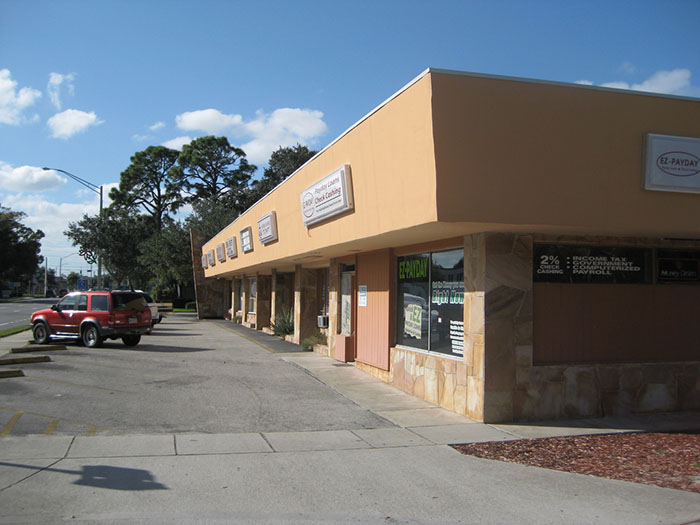by Gabriel Levitt, President, PharmacyChecker.com and Prescription Justice | Sep 15, 2016 | Advocacy, Internet Censorship, Policy, Politics

To affordable medication!
It’s a well-known fact that the pharmaceutical industry has the greatest lobbying prowess of any industry in America. That power enables them to drive law and policy here at home – including the creation and maintenance of laws that make it technically illegal to import lower cost medications from Canada and other countries. Such is the nature of political power in the United States. But things are different in the virtual world.
Big pharma is trying to have that same sway over the Internet in order to stop people from buying lower cost medications online – and they are having successes. But the Internet community and the access to medicines activists can team up to defeat them. In an article I published on Circle ID this week, I identify for the Internet community what it means to protect online access to safe and affordable medication.
Essentially, I propose that rules applied to medicine sales on the Internet should reflect the highest aspirations of human rights law, which hold that access to affordable medications are a human right. Under this perspective, companies, such as registries, registrars, online payment processors, and others, that control “access” to the Internet, should do everything they can to make sure Internet users have the widest possible online access to purchase medication they can afford. Who wouldn’t want that?
by Gabriel Levitt, President, PharmacyChecker.com and Prescription Justice | Sep 9, 2016 | Advocacy, Government, Personal Drug Importation, Policy, Politics

Talking to the New York Times!
Last week the New York Times published my Letter to the Editor in response to an article about Mylan’s despicable increase of the life-saving drug Epipen, which saves people from serious allergic reactions. In “An Outcry Over the Price of Epipen,” my Letter’s focus is really on Congress and the need for them to actually do something besides talk. I note that personal drug importation, which is already happening, should not just be tolerated as a technically illegal behavior for which patients are never prosecuted but encouraged using proper guidance so that people can afford the prescriptions they need.
The other Letters provide excellent contributions to the policy debate. Caroline Poplin, who is a doctor, lawyer and healthcare analyst (wow!), criticizes drug companies for their abuse of our patent laws and federal regulations that allow them to maximize profits over patients. She believes that where the market is producing “bad results” government ought to provide remedies.
Sarah fink writes that due to the price of Epipen, her serious allergic reaction forced the plane she was on to land! Here we learn that airlines started cutting back on keeping Epipens on places due to the price. This was my favorite Letter.
Again, check it out here.
Tagged with: EpiPen, letter, mylan, nytimes
by Gabriel Levitt, President, PharmacyChecker.com and Prescription Justice | Jun 30, 2016 | Advocacy, Government, Policy, Politics

Bring it on!
As noted on the top of this web page, this blog is about “Helping Americans Get the Truth About Prescription Savings”. From time to time, I’m afforded the honor of spreading the truth farther and wider than our blog, including this week in Morning Consult, an online journal covering the intersection of politics, policy and business. In “Americans Deserve the Truth about Lower Cost Prescriptions,” I articulate the simple reality that millions of Americans import lower cost and safe medication and that they have done so for 15 years when buying from the safest international online pharmacies, despite federal restrictions.
Against consumers is the multinational pharmaceutical industry, which, in protection of its profits, spends a good deal of time and money scaring Americans into not buying lower cost medication on the grounds that they are likely to get a fake or substandard drug. To them the Internet presents mostly dangers when it comes to buying affordable medication. They refer to safe international online pharmacies as “rogue” or “fake” – and that scares people.
Remember, we’re dealing with a crisis of high drug prices in America and there are safe international online pharmacies that provide immediate relief while we work out longer term solutions. The flip side of the Big Pharma narrative about “rogue online pharmacies” is plain to see as the truth for those who take the time to look. The role of the Internet in making it possible for a consumer to obtain an essential medication in another country that is not affordable locally should have us all talking about how to encourage online access to safe and affordable medication.
Truth.
Tagged with: lower cost medication, morning consult, truth
by Gabriel Levitt, President, PharmacyChecker.com and Prescription Justice | Jun 23, 2016 | FDA, Government, Online Pharmacies, Policy, Politics

“I represent safe and affordable imported medication. This bathwater is dangerous rogue pharmacy websites!”
Earlier this month, the U.S. Food and Drug Administration published a press release about Operation Pangea, an annual global initiative led by INTERPOL “to combat the unlawful sale and distribution of illegal and potentially counterfeit medical products on the internet.” This is the ninth annual operation, and each year I wonder if FDA will throw the baby out with the bathwater.
There are, according to FDA’s own sources, tens of thousands of drug-selling websites. Most of them are considered “rogue” by PharmacyChecker.com. Where the FDA and Operation Pangea successfully shut down sites (whether lawful or not) that intentionally sell counterfeit medications, or even online pharmacies that sell real medications but without the qualifications or pharmacy safety protocols to do so, we applaud their actions. Shutting down dangerous online pharmacies – throwing out the bathwater – is noble.
In February of last year we submitted a policy paper that I wrote to congressional committees with jurisdiction over laws and regulations that affect access to safe and affordable medications. Entitled “Online Pharmacies, Persona Drug Importation, and Public Health,” I argued that safe international online pharmacies are a boon to public health because they enable consumers to afford prescribed medications, and that overzealous enforcement of drug importation regulation could negatively affect access to those sites. Actions taken by FDA and through Operation Pangea would seem to cross the line from public health to Big Pharma profit protection where they curtail access to the safest international online pharmacies, which is throwing out the baby.
(more…)
Tagged with: Interpol, pangea
by Gabriel Levitt, President, PharmacyChecker.com and Prescription Justice | Jun 3, 2016 | Personal Drug Importation, Policy, Storefronts
Yes, but it depends where you live. For example, if you live in Florida, according to Kaiser Health News, apparently it’s very easy to find a local “storefront” where you can buy lower cost medication from Canada and other countries. Of course, consumers do not need to go to a pharmacy storefront to benefit from lower drug prices in other countries. They can compare drug prices among safe international online pharmacies in our Verification Program.
As with most personal drug importation, the FDA has said importing meds from foreign pharmacies is technically illegal under most circumstances. In practice, the FDA does not prosecute individuals for importing small quantities of prescription drugs for personal use. According to Kaiser Health News, the pharmacy storefronts in Florida have not faced regulatory actions. A professor of health policy at University of South Florida, Sean Greggory, stated that shutting down storefronts “would be seen as restricting access to affordable drugs and supporting big bad [drug] corporations.”
PharmacyChecker.com checks the credentials of international online pharmacies to verify that they are licensed and operating properly but to date we have not checked storefront pharmacy operations. However, over the years, we’ve heard about storefronts throughout the U.S. that refer orders to pharmacies in other countries and, if those pharmacies are licensed and operating safety, we think it’s great!
The need for the storefronts is greatest among older Americans. Their Part D Medicare drug plans are not always adequate to cover prescription costs and seniors continue to face drug affordability problems. The storefronts, like international online pharmacies, offer much lower prices on brand name drugs than local U.S. pharmacies.
When online pharmacies, particularly the Canadian options, were first available over 15 years ago, many seniors did not know how to use the Internet or felt uncomfortable doing so. In 2000, only 14% of seniors used the Internet, compared to 58% in 2015 [Source]. But that still leaves a lot of seniors who might have trouble ordering medication online by themselves. For them, pharmacy storefronts can be a lifeline. As the Kaiser article points out, while “Many consumers do their own online buying from foreign pharmacies…storefront operators target an older generation interested in buying medicines abroad but who lack computer savvy and are insecure about buying online by themselves.”
Tagged with: Canadian pharmacies, Drug Importation, international online pharmacies, Storefront
by Gabriel Levitt, President, PharmacyChecker.com and Prescription Justice | Feb 19, 2016 | Drug Importation, Drug Prices, Policy
With its gift of $7.2 million to fund various research projects, the John and Laura Arnold Foundation gave a boost this week to the cause of lowering drug prices in America. According to the Foundation’s press release: “The research projects will focus on analyzing how regulatory policies and programs impact drug pricing, drug development, and patients’ access to medication.”
The lion’s share of the funds will go to the Memorial Sloane Kettering Cancer Center’s Evidence Driven Drug Pricing Project. Led by Dr. Peter Bach, the effort pursues strategies to evaluate the relative effectiveness of medications. The goal of Dr. Bach’s project is to make sure that medications are priced according to how well they actually work. Sounds like common sense, but too often medications that often don’t work are widely prescribed, and very expensive!
The money will also go toward various evidence-based studies looking into the workings of the drug development pipeline, state and federal regulations that affect Medicaid drug purchasing, and alternative Medicaid purchasing models that tie reimbursement to patient health outcomes.
One smaller project caught my eye, because it looks at pharmaceutical regulations and law that affect innovation. The Brigham and Woman’s Hospital’s Program on Regulations, Therapeutics, and Law will receive $748,445 to analyze existing regulations enacted to incentivize pharmaceutical innovation. The press release reads: “Researchers will analyze programs and incentives such as tax breaks, market exclusivity protections, and the Food and Drug Administration’s (FDA) fast-track approval pathways.”
In looking at regulations and law, the cause of lower drug prices would be well served by a research project dedicated to evaluating the effects of federal restrictions on prescription drug importation. Ostensibly, drug importation restrictions are in place to prevent unsafe and counterfeit medications from reaching patients, but we know that they also curtail access to lower cost, safe and effective medication as well. That’s why millions of Americans buy foreign medication online despite the prohibiting regulations.
New research would help determine a more suitable regulatory framework to protect patient health, but also expand access to more affordable medication through safe personal drug importation. This recent grant by the John and Laura Arnold Foundation is its second in the area of prescription drug prices. Three’s a charm!
Tagged with: Brigham and Woman’s Hospital, Drug Importation, Evidence Driven Drug Pricing Project, John and Laura Arnold Foundation, Memorial Sloane Kettering Cancer Center







